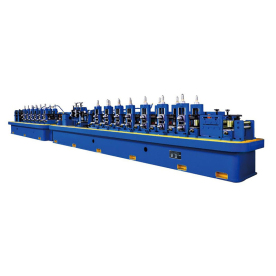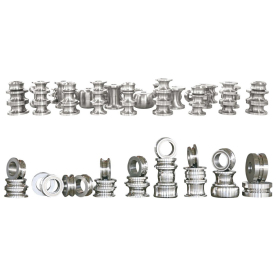[Pipe mill production line with quality control measures]Pipe Mill Production Line: Implementing Quality Control Measures for Superior Products
News 2025-6-11
In the manufacturing industry, pipe mills play a pivotal role in supplying a wide range of pipe sizes and materials for various applications. With the escalating demand for high-quality pipes products, it becomes imperative for pipe mill production lines to incorporate effective quality control measures. This article highlights the importance of quality control in pipe mill production and discusses the measures that ensure superior-quality output.

Pipe Mill Production Line: Implementing Quality Control Measures for Superior Products
Next comes the manufacturing process, which involves several operations like rolling, welding, and forming. It is crucial to monitor these processes closely to ensure that each step is carried out accurately. Any deviation from the standard operating procedures can affect the quality of the pipe. Here, automated machines and advanced technologies come into play, providing accurate and consistent results.

Pipe Mill Production Line: Implementing Quality Control Measures for Superior Products
Moreover, pipe mills should also focus on employee training and awareness about quality control measures. Well-trained personnel can identify potential quality issues early and take proactive measures to rectify them. Regular training sessions on new technologies and best practices can help employees stay updated with the latest industry standards.

Pipe Mill Production Line: Implementing Quality Control Measures for Superior Products
In addition to the above measures, regular maintenance of machines and equipment is crucial for ensuring consistent quality. Regular maintenance checks can identify minor issues that could potentially affect the quality of the product in the longer run. Timely repairs and replacements of worn-out parts can ensure maximum performance of machines and maintain high-quality standards.
In conclusion, implementing effective quality control measures in pipe mill production lines is essential for ensuring superior-quality products. From raw material procurement to final product inspection, each stage should be closely monitored to ensure that the pipe meets the specified standards and requirements. Embracing advanced technologies, training personnel, implementing a robust quality management system, and maintaining machines can help achieve consistent quality in pipe production.
